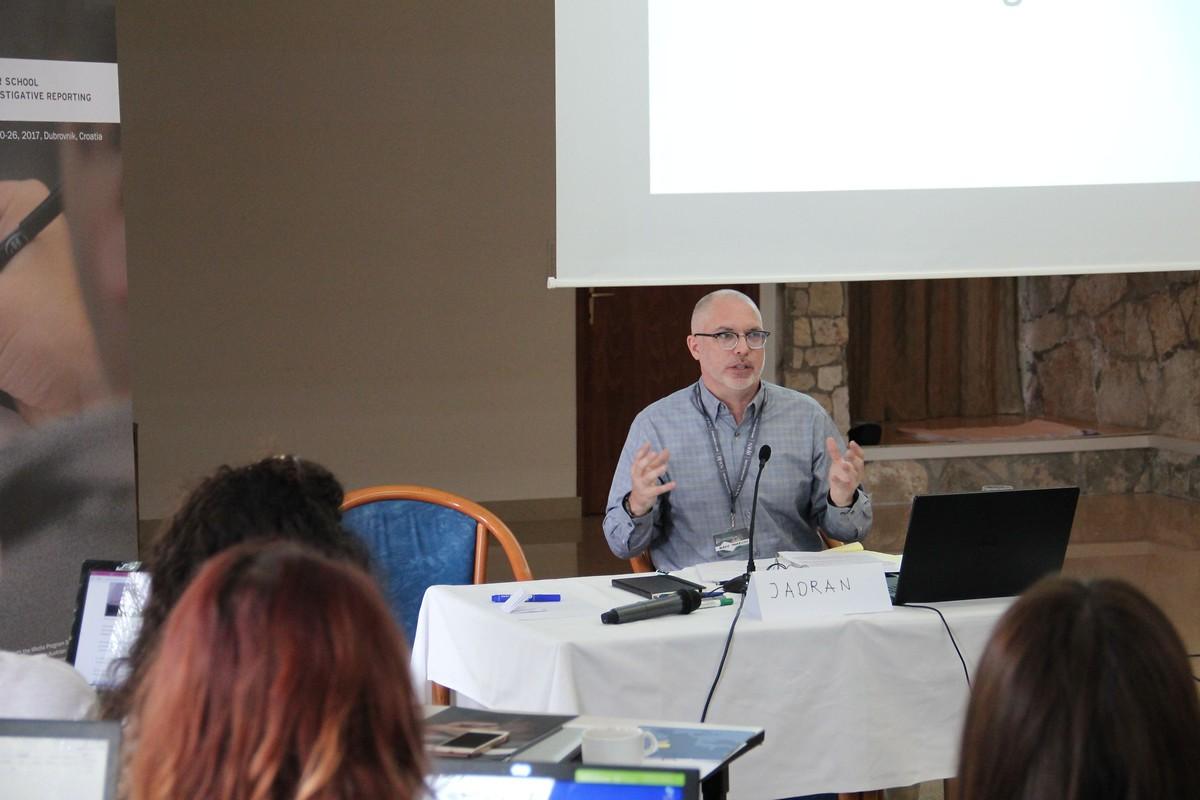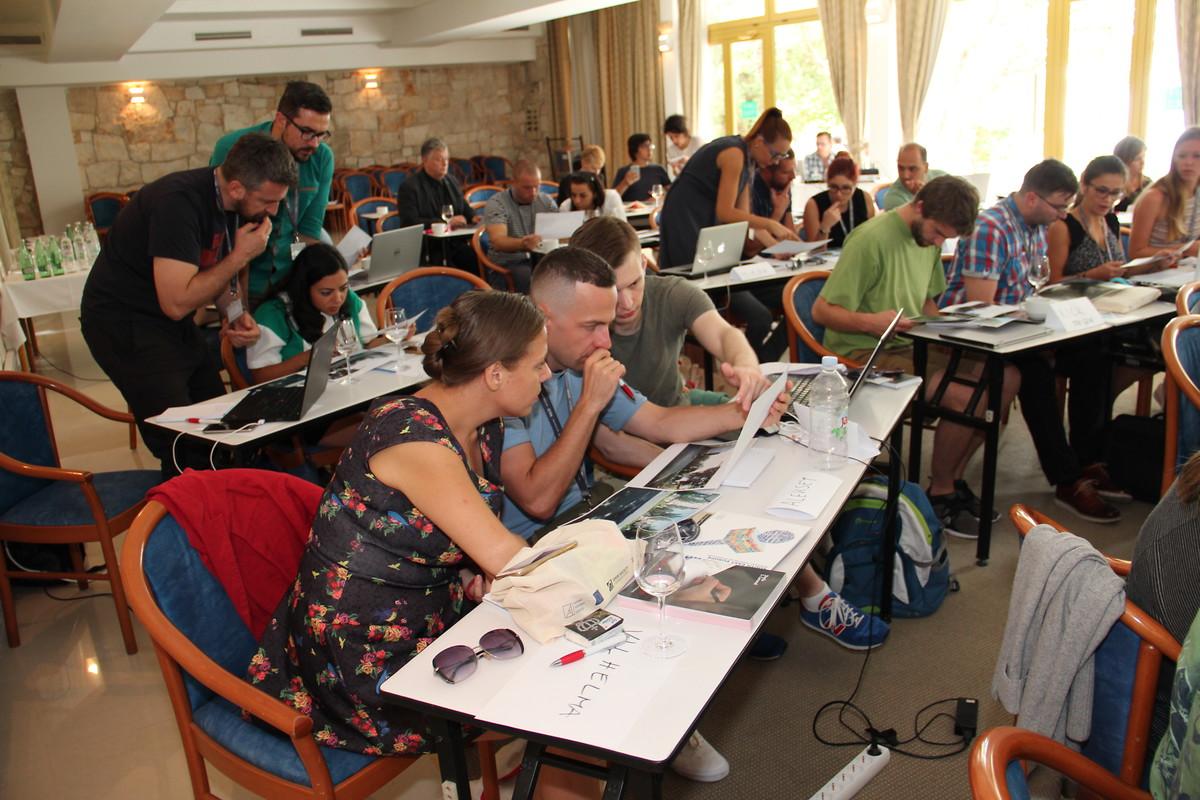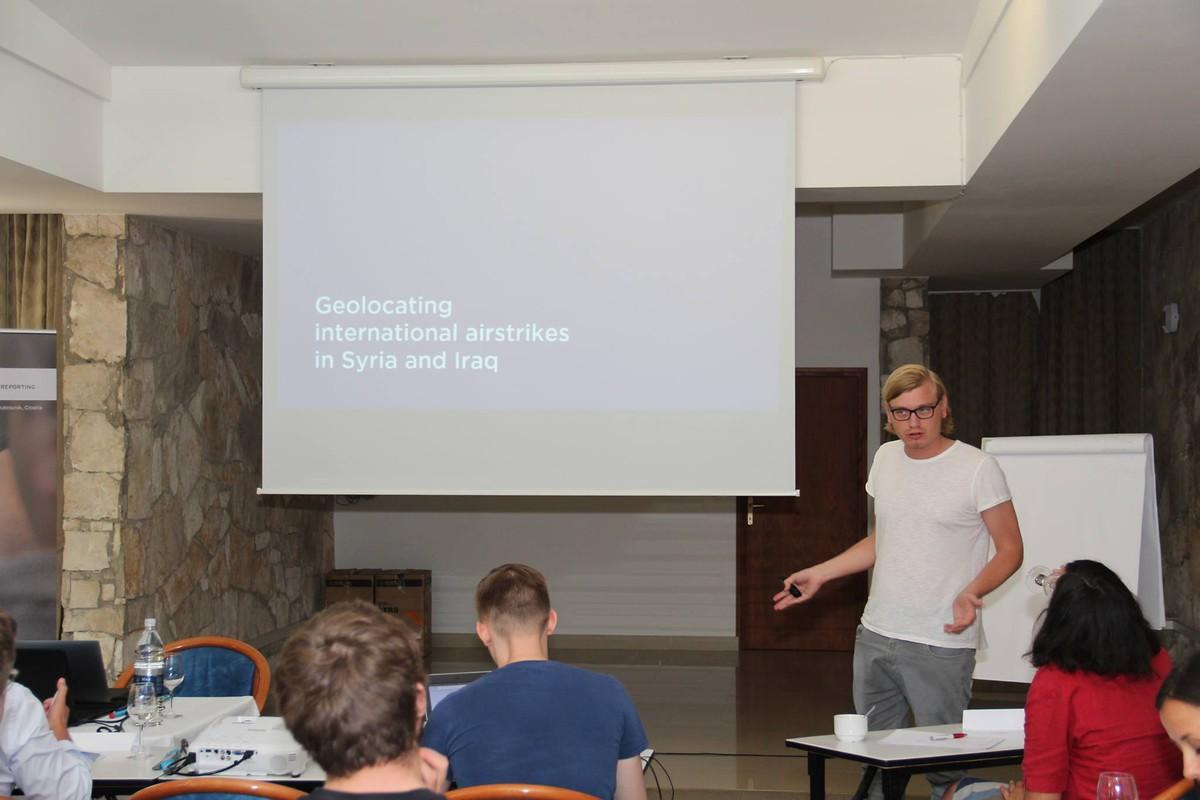For the eighth time the Balkan Investigative Reporting Network (BIRN) organised the BIRN Summer School for Investigative Reporting with support of the Media Program South East Europe of Konrad-Adenauer-Stiftung. 32 journalists from 16 countries got together from 20th to 26th August in Mlini (Croatia) in order to learn the latest trends in data journalism, in-depth online research as well as storytelling.
The Summer School was opened by Gordana Igrić, BIRN Regional Director, lead trainer Blake Morrison (Reuters) and Christian Spahr, Head of the KAS Media Program South East Europe. This year participants came from South East Europe as well as Canada, Luxembourg, Ukraine and Czech Republic to Mlini nearby Dubrovnik.
At the beginning, Blake Morrison explained how investigative stories are presented in the best manner, for example when it comes to topics like organised crime. ‘Behind a nameless system, you need to find people who are accountable for what they have done’, said Morrison. It is important to focus stories on persons. Additionally, he explained how to develop research ideas, how to ask sources in a responsible way and how to succeed in separating assumptions from evidence. The participants had the opportunity to discuss their concepts in one-to-one sessions with Morrison.
Christiaan Triebert and Henk van Ess, members of the research network Bellingcat, gave hints on how publicly available data can be used for research purposes. ‘Data from different online platforms can help with fact checking’, said Triebert. He introduced different possibilities of geolocation, for example how photos can be verified or locations can be pinpointed precisely in order to check claims. ‘We have to examine the claims of governments. That is why the verification of statements is so important’, he emphasised.
Henk van Ess explored the topic further and referred to numerous online tools and research options for Google and Facebook. With these tools he showed how people who are difficult to locate can be found in a short time – like, for example, a Daesh terrorist. His most important tip: ‘As soon as you got something relevant on your screen, save it!’
More in the event report.
Topics
On the Self-inflicted Causes of the Crisis in Journalism
The fire disaster in Kočani: Shock for state and society in North Macedonia
Why an independent Digital Ministry is indispensable and how it could be structured
The election of Ursula von der Leyen as President of the European Commission
Presidential and parliamentary elections in North Macedonia: victory for the opposition VMRO-DPMNE








